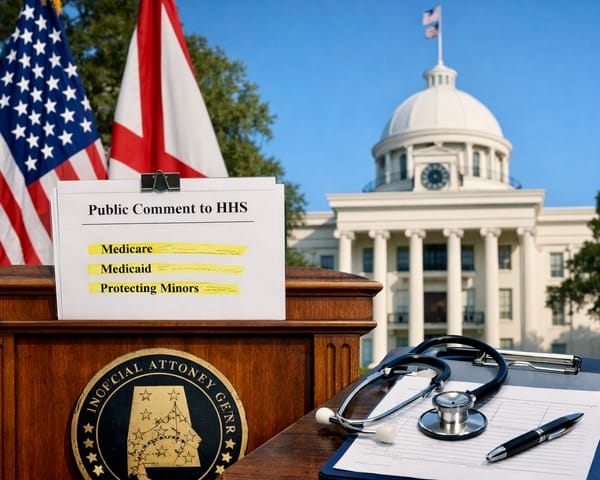Missouri Attorney General Sues Planned Parenthood, Challenging Safety Claims of Abortion Pill
Alleges the organization misled women by claiming mifepristone is "safer than…penicillin, Tylenol, and Viagra"

Missouri Attorney General Andrew Bailey has filed a lawsuit in Cole County Circuit Court against the Planned Parenthood Federation of America. He alleges the organization misled women by claiming the abortion drug mifepristone is "safer than many other medicines like penicillin, Tylenol, and Viagra"—a statement he asserts violates State consumer protection laws.
Bailey’s suit cites Missouri’s Merchandising Practices Act. It seeks approximately $1.8 million in penalties and restitution. That includes up to $1,000 in damages for every Missouri woman who received the drug from Planned Parenthood over the past five years. The State also wants reimbursement for Medicaid‑funded care tied to complications and a court order banning the disputed claims in Cole County.
“The national Planned Parenthood organization is actively endangering the lives of women and girls across the country by spreading lies and disinformation about the powerful chemical abortion drug,” said Attorney General Bailey. “The facts are clear: more than 4.5 percent of women who take this dangerous drug end up in the emergency room, yet Planned Parenthood compares it to Tylenol. This is a blatant violation of Missouri law, and I will not allow a death factory to lie to Missouri women in pursuit of its radical agenda.”
According to Bailey’s office, Planned Parenthood has targeted Missouri women with false statements about the drug’s relative safety. The interactive website, they say, encourages local residents to book appointments through affiliate clinics based on those falsehoods.
Planned Parenthood has called the lawsuit "meritless," while the FDA maintains that serious complications from mifepristone are rare—occurring in fewer than 0.5 percent of users.
Bailey references newer studies suggesting serious adverse effects for about 11 percent of women. One major report analyzed nearly 866,000 insurance claims from 2017 to 2023. It found that 10.93 percent of users experienced complications like infection, hemorrhage, or sepsis within 45 days of taking mifepristone.
The FDA, by contrast, says between 2.9 percent and 4.6 percent of users visit the emergency room after taking the drug. Hospitalization occurs in up to 0.6 percent of cases. These figures stem from broader post‑marketing surveillance and clinical trials.
Planned Parenthood and major medical groups argue that mifepristone is very safe. A federal review emphasizes that the drug remains safer than continuing a pregnancy or using medicines like Tylenol, when administered under medical supervision.
Critics of the 11 percent study question its methods. They note it’s not peer‑reviewed and may overcount routine outcomes—like follow‑up visits or expected bleeding—as serious complications. Some experts warn the data may misrepresent the drug’s risk profile by including cases not directly linked to the drug’s effects.
The lawsuit illustrates deepening tensions over abortion access and drug safety. Missouri is one of 28 states that restrict medication abortion. Nationally, attorneys general in some Democratic‑led states recently petitioned the FDA to loosen remaining regulations on mifepristone—including easing prescriber certification requirements—arguing the drug’s long‑term safety record justifies it.
Missouri’s case aims to penalize Planned Parenthood and restrict its messaging. Observers expect the organization to challenge the suit. As both sides prepare legal filings, the case may influence ongoing FDA reviews and national policy debates.
The lawsuit may be read HERE.




